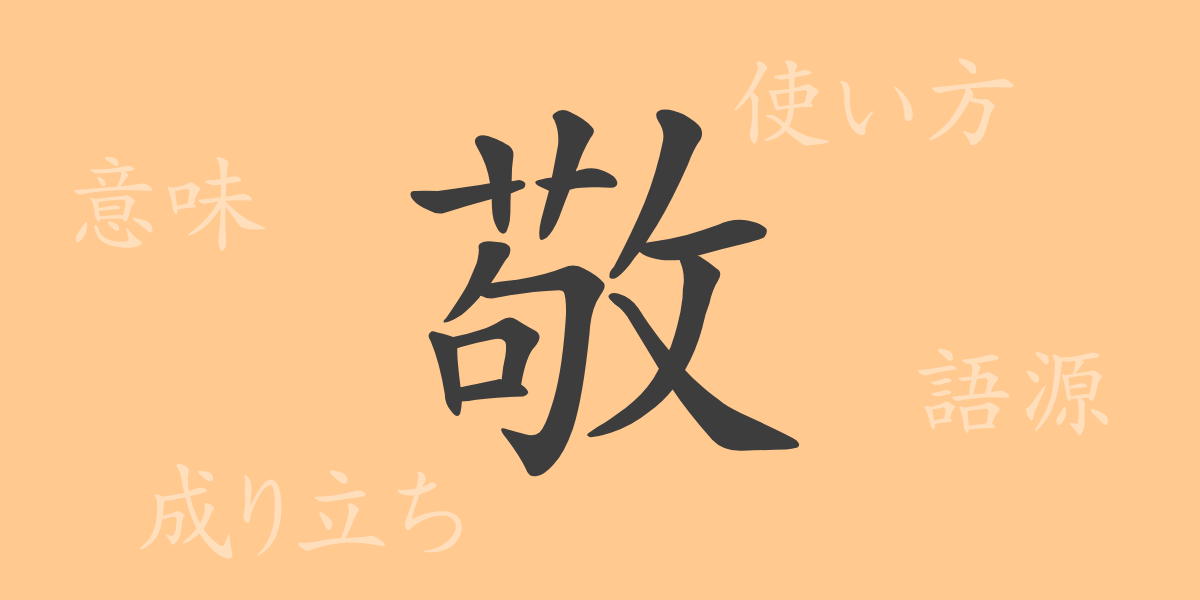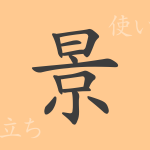Japanese culture deeply values showing respect, a sentiment embodied in the character “敬(けい, kei).” In this article, we delve into the history, meaning, and usage of the kanji “敬(けい, kei).” Let’s explore the world of “敬(けい, kei),” a character that exemplifies the beauty of the Japanese language.
Origin of 敬(けい, kei) (Etymology)
The kanji “敬(けい, kei)” originates from ancient China. Initially, the character “苟(こう, kou)” meant “careless” or “negligent.” Later, “攴(ぼくづくり, bokudzukuri)” (meaning “to strike”) was added to “苟(こう, kou),” evolving to mean “modest” or “humble.” This change reflects the added concepts of attentiveness and respect in actions.
Meanings and Uses of 敬(けい, kei)
The kanji “敬(けい, kei)” represents respect and reverence, emphasizing an attitude of politeness and esteem for others. It also implies self-restraint in one’s actions. “敬(けい, kei)” is commonly used in forming honorific expressions, as seen in words like “敬う(うやまう, uyamau)” (to respect), “敬遠(けいえん, keien)” (keeping at a respectful distance), and “敬称(けいしょう, keishou)” (honorific title).
Readings, Stroke Count, and Radical of 敬(けい, kei)
The character “敬(けい, kei)” carries profound meaning in its form and pronunciation.
- Readings: The on’yomi (Chinese reading) is “ケイ(けい, kei),” and the kun’yomi (Japanese reading) is “うやまう(uyamau).”
- Stroke count: “敬(けい, kei)” consists of 12 strokes.
- Radical: The radical is “攴(ぼくづくり, bokudzukuri).”
Idioms, Expressions, and Proverbs Using 敬(けい, kei)
Idioms, expressions, and proverbs that include “敬(けい, kei)” reflect Japan’s culture of valuing respect.
- 敬愛(けいあい, keiai) – To deeply love and respect.
- 敬服(けいふく, keifuku) – To deeply admire and respect someone’s actions or character.
- 尊敬(そんけい, sonkei) – To honor and respect others.
- 敬老の心に学ぶ(けいろうのこころにまなぶ, keirou no kokoro ni manabu) – A proverb meaning “Learn from the respect for elders.”
Conclusion on 敬(けい, kei)
The kanji “敬(けい, kei)” is not merely a character but represents values cherished in Japanese life. From this single character, we can sense the spirit of politeness and respect in human interactions. Understanding and valuing the profound meaning of “敬(けい, kei)” is key to enriching Japanese culture.

























